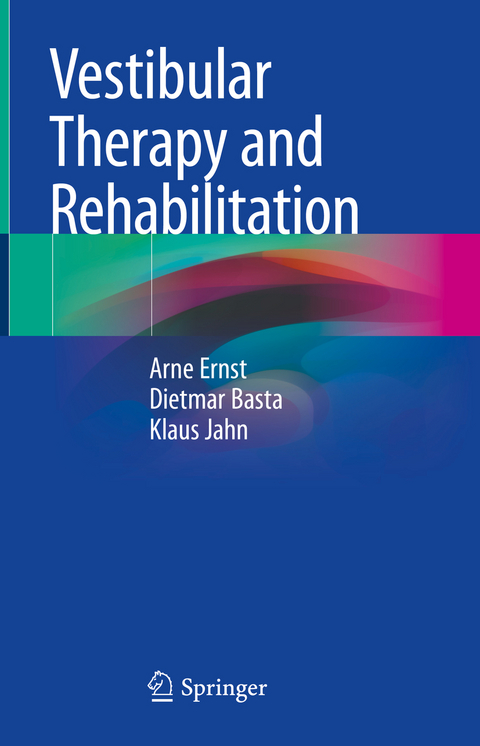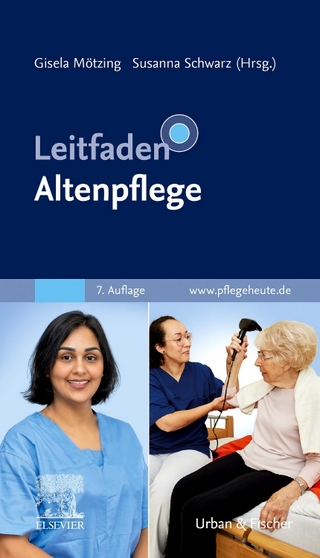
Vestibular Therapy and Rehabilitation
Springer International Publishing (Verlag)
978-3-031-64317-0 (ISBN)
Vestibular rehabilitation (VR) has changed over the last decades from a purely PT-based (PT=physical therapy) concept to a multifactorial, multiprofessional therapy which includes PT (as basis), augmented reality, tech-based training programs, as well as supplementary drug therapy. This book presents an academic, state-of-the-art overview that helps the therapists to perform those programs which will help to council and prepare the patients. It is of interest for physicians, scientists and therapists from different areas like neurologists, rehabilitation scientists, otolaryngologists, geriatricians, neuroorthopedics and others (such as PT).
Arne Ernst was educated at Martin Luther University Halle until 1984 (MD). After specialization in otolaryngology he served as Assistant Professor at the University of Tübingen (PhD) until 1993 and as Associate Professor and Head of the Experimental Audiology Unit at Hanover Medical School until 1997. He received travel/research grants to further qualify at Univ.spital Zurich (Prof. Fisch), Physiological Institute Innsbruck (Prof. Lang), Institut Pasteur (Prof. Vargaftig). He served as Chairman of ADANO from 2010-2018 and is member of the Editorial Board of Otology & Neurotology (Lippincott). From 1998 on he is Professor and Chairman of the Dept. Otolaryngology at ukb (Berlin) and is teaching at Charité Medical School (Berlin). His professional specialization includes otology, neurotology, vestibular rehab, age-related audiovestibular disorders and auditory implants.
Dietmar Basta was educated at Humboldt University Berlin (HUB) in biology/chemistry until 1996 and was a PhD student at the Institute of Biology at HUB. During graduating (PhD) at HUB, he specialized in neurophysiology and was group leader at the University of Potsdam until 2002. From 2003 on, he is head of the Research Centre for Applied Medical Technology (ZAM) at ukb (Berlin). In 2009, he graduated in neurophysiology and vestibular physiology in particular (Priv.-Dozent/Associate Professor) at the Institute of Neurophysiology of Charité Medical School Berlin. From 2015 on, he served as a board member of the neurotological branch of the German ENT Society (ADANO) and is member of the Editorial Board of "Frontiers in Neuroscience" and "Brain Scienes". He was awarded with the Hennig-Vertigo-Price (2006), the ADANO Innovation Price (2012) and is a Faculty member "International Graduate Program Medical Neurosciences" - Cluster of Excellence "NeuroCure" and at the Institute of Neurophysiology at Charité. His research focus is on vestibular rehab, vestibular testing and noise-/age-related audiovestibular disorders.
Klaus Jahn was educated at the Medical Schools of the University of Duisburg-Essen, the Technical University of Munich, Germany, and the University of Wisconsin, Madison, WI, USA. He received his medical degree in 1996. For his MD thesis (Dr. med.) he investigated ligand-activated ion channels in thin brain slices using patch-clamp electrophysiology. He received training in Neurology at the Technical University of Munich (TU) and at the Ludwig-Maximilians University of Munich (LMU) and became board certified Neurologist and Intensive Care specialist in 2005. In 2006, he received his habilitation degree (Priv.-Doz.) in Neurology and Clinical Neurophysiology in Munich (LMU). The topic of his research thesis was the relation of balance control and eye movements. Klaus Jahn has been Consultant Neurologist at the University of Munich (LMU) 2006-2014. Between 2012 and 2014 he was the Director of the German Center for Vertigo and Balance Disorders (DSGZ). Since 2015 he is Head of Department of Neurology and Geriatrics at the Schön Klinik Bad Aibling, one of the largest centers for Neurology and Rehabilitation in Europe. His research focus is on balance, gait disorders, vertigo, and neurorehabilitation including vestibular rehabilitation.
To be approved. I revised the provided TOC
Part 1 Basics.- Chapter 1: Dynamics of vestibular disorders, compensation, habituation.- Chapte 2: Vestibular disorders.- Chapter 3: Vertigo and dizziness as major symptoms in different etiologies.- Part 2 Specific VR.- Chapter 4: PT.- Chapter 5: Repositioning (BPPV).- Chapter 6: Rehab technology (NFT, spinning, optokinetic training).- Part 3 Drug therapy.- Chapter 7: Antivertiginous drugs.- Chapter 8: Psychotropic drugs.- Chapter 9: Analgesics.- Chapter 10: Drug therapy of specific vestibular disorders and dizziness.- Part 4 Other measures.- Chapter 11: Tai Chi, sports.- Chapter 12: Diet.- Chapter 13: Counselling and coping.
| Erscheinungsdatum | 18.09.2024 |
|---|---|
| Zusatzinfo | XXI, 129 p. With online files/update. |
| Verlagsort | Cham |
| Sprache | englisch |
| Maße | 155 x 235 mm |
| Themenwelt | Medizin / Pharmazie ► Medizinische Fachgebiete ► Geriatrie |
| Medizin / Pharmazie ► Medizinische Fachgebiete ► HNO-Heilkunde | |
| Medizin / Pharmazie ► Medizinische Fachgebiete ► Neurologie | |
| Schlagworte | balance disorders • drug therapy • Geriatric Psychiatry • physiotherapy • Rehabilitation Science • vestibular exercises • vestibular training |
| ISBN-10 | 3-031-64317-8 / 3031643178 |
| ISBN-13 | 978-3-031-64317-0 / 9783031643170 |
| Zustand | Neuware |
| Haben Sie eine Frage zum Produkt? |
aus dem Bereich


